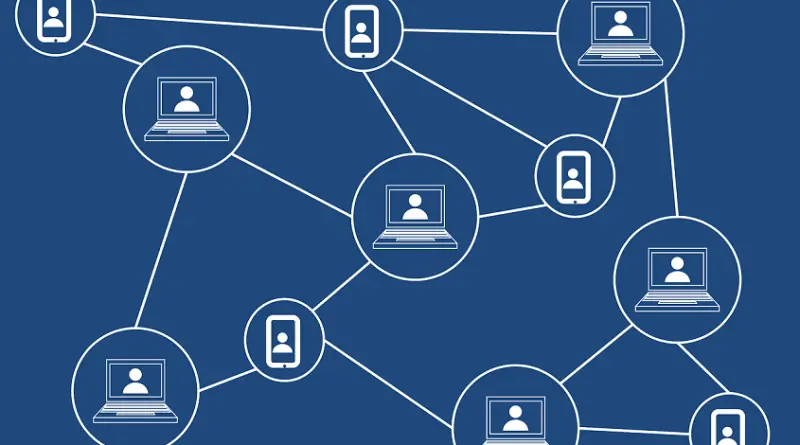The Role of Blockchain in the Development of Smart Contracts
Blockchain and smart contracts revolutionize transactions by providing secure, transparent, and decentralized solutions. The intersection of these technologies is transforming the way we manage data and enforce agreements.
Blockchain technology and smart contracts are two innovative advancements that are transforming the way we conduct transactions and enforce agreements. The intersection of blockchain and smart contracts has enabled the creation of secure and reliable decentralized systems that can automate processes, reduce intermediaries, and increase transparency. The role of blockchain in smart contracts is crucial as it provides a tamper-proof ledger that records transactions and ensures the execution of the contract as per the code written. The utilization of blockchain in smart contracts has proven to be a game-changer in areas such as decentralized finance, supply chain management, and digital identity management. As the adoption of blockchain and smart contracts continues to grow, it is crucial to understand their capabilities and limitations to unlock their full potential.
Background on Blockchain Technology
Blockchain technology is a decentralized, digital ledger system that records transactions across a network of computers. Originating as the underlying technology for cryptocurrency, blockchain has since evolved to encompass a wide range of applications. Key features of blockchain include immutability, transparency, and security, all of which stem from its decentralized nature. There are several types of blockchain, including public, private, and consortium, each with their own characteristics and use cases. The public blockchain is open to anyone and is often used for cryptocurrency transactions, while private blockchain is restricted to authorized participants and is commonly used in enterprise settings. The consortium blockchain lies somewhere in between, with control shared among a group of pre-approved participants. Understanding the background and features of blockchain technology is crucial for appreciating its potential impact and utilization in various industries.
Smart Contracts 101
Smart contracts are self-executing agreements with the terms of the contract encoded as computer code. The code and its associated rules define the conditions that must be met to trigger the automatic execution of the contract. They eliminate the need for intermediaries and automate the enforcement of agreements.
Advantages of using smart contracts:
Smart contracts offer several benefits, including increased efficiency, reduced costs, increased security, and increased trust. They automate processes and reduce the risk of human error, which can result in reduced transaction costs and increased speed. They also offer transparency and immutability, which provides a high level of security for transactions and agreements.
Use cases for smart contracts:
Smart contracts have a wide range of potential use cases, including decentralized finance (DeFi), supply chain management, digital identity management, voting systems, and property management. They have the potential to revolutionize traditional industries by offering a more secure and efficient way to transact and enforce agreements. As the technology continues to mature, the use cases for smart contracts will likely continue to expand.
The Intersection of Blockchain and Smart Contracts
The intersection of blockchain technology and smart contracts represents a significant advancement in the way we conduct transactions and enforce agreements. Blockchain provides a tamper-proof ledger that records transactions, while smart contracts automate the enforcement of agreements based on pre-defined rules and conditions. Together, they create a secure and reliable decentralized system that can reduce intermediaries, increase transparency, and improve efficiency.
Blockchain enables the creation and execution of smart contracts by providing a secure and decentralized platform to store and execute the code that governs the contract. The use of blockchain in smart contracts ensures the security and reliability of the agreement as the code cannot be altered once it has been executed. This makes it possible to automate complex processes and transactions, reducing the risk of human error and increasing speed and efficiency.
The impact of blockchain on the development and adoption of smart contracts has been substantial. The secure and transparent nature of blockchain has made it possible for organizations to trust the execution of smart contracts, resulting in the rapid growth of decentralized finance (DeFi) applications, supply chain management, and digital identity management.
Real-World Applications of Blockchain-based Smart Contracts
- Decentralized finance (DeFi) – DeFi is one of the most prominent applications of blockchain-based smart contracts, which enable decentralized financial services such as lending, borrowing, and trading.
- Supply chain management – Blockchain-based smart contracts can be used to automate and improve supply chain management processes, including product tracking and verification, payments, and dispute resolution.
- Digital identity management – Blockchain-based smart contracts can provide a secure and transparent way to manage digital identities, helping to protect personal data and prevent fraud.
- Gaming – Smart contracts can be used in gaming to ensure fair play, automate payments and other transactions, and create decentralized gaming platforms.
- Property management – Blockchain-based smart contracts can automate and streamline the process of buying and selling real estate, reducing the need for intermediaries and increasing transparency.
- Government services – Blockchain-based smart contracts have the potential to improve government services such as voting, land registry, and benefit distribution.
- Healthcare – Blockchain-based smart contracts can be used to secure and manage medical records, streamline drug supply chains, and improve patient data privacy.
Challenges and Limitations
Despite its potential, the implementation of blockchain-based smart contracts is not without its challenges and limitations. Some of the most significant challenges include:
- Complexity – Smart contracts are often complex and require a high level of technical expertise to develop and implement. This can make it difficult for organizations to adopt the technology and utilize its full potential.
- Scalability – The current scalability of blockchain networks is limited, which can result in slow transaction times and high fees. This can hinder the widespread adoption of blockchain-based smart contracts.
- Interoperability – There are several different blockchain platforms, and the lack of interoperability between them can make it difficult for organizations to utilize the technology across multiple platforms.
- Regulation – Blockchain and smart contracts are still relatively new technologies, and there is a lack of clear regulatory guidance on their use and implementation. This can make it difficult for organizations to fully realize the potential of blockchain-based smart contracts.
- Security – Despite the security benefits offered by blockchain, smart contracts are still vulnerable to hacking and other types of cyber attacks. This highlights the need for continued investment in blockchain security research and development.
Future of Blockchain and Smart Contracts
The future of blockchain and smart contracts is promising, with significant potential for continued growth and adoption across a range of industries and applications. The combination of secure, transparent, and decentralized technology has the potential to transform the way we conduct transactions, manage data, and enforce agreements.
As blockchain technology continues to evolve and mature, it is likely that new and innovative use cases for blockchain-based smart contracts will emerge. The development of new blockchain platforms, such as Ethereum 2.0, is poised to address current challenges related to scalability, security, and interoperability, making it easier for organizations to adopt the technology.
In addition, the increasing adoption of decentralized finance (DeFi) is likely to drive continued growth in the blockchain and smart contract space. The growth of DeFi and other decentralized applications highlights the potential for blockchain-based smart contracts to provide financial services and solutions that are more accessible and secure for individuals and organizations.




